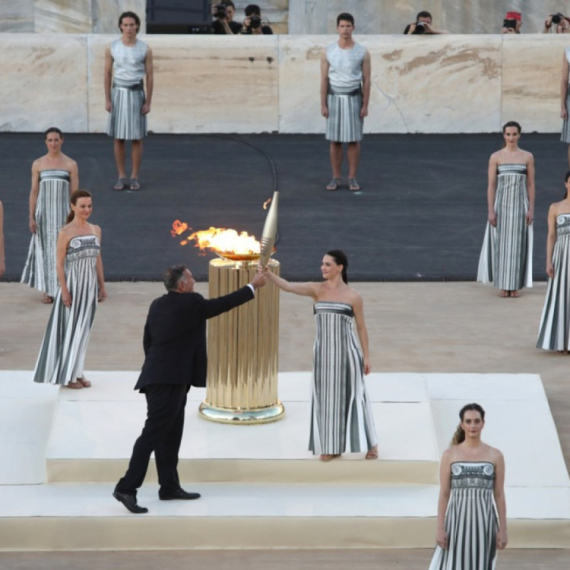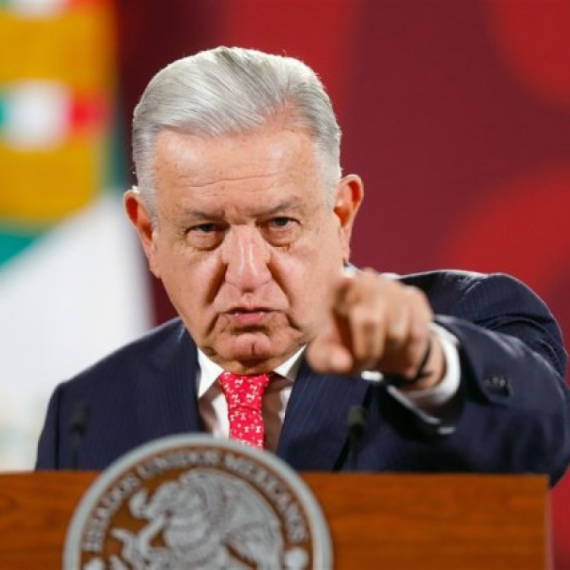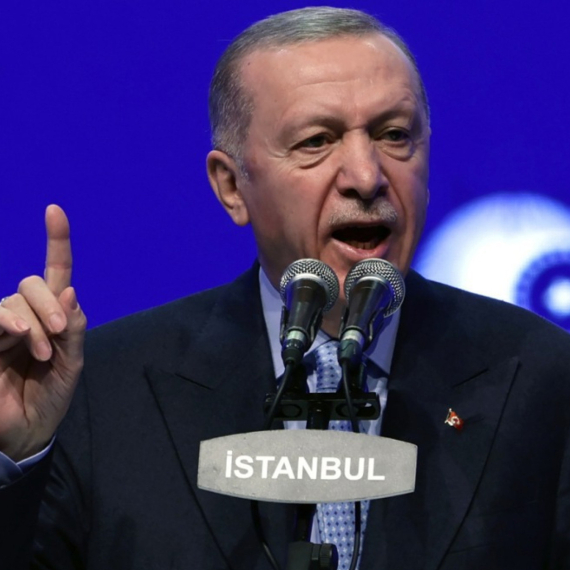Serbia to demand review of ex-Yugoslavia property agreements
Group for Succession chief Oliver Antić has announced that Serbia will seek a review of some agreements on the division of the former Yugoslavia property.
Wednesday, 26.12.2012.
15:05

BELGRADE Group for Succession chief Oliver Antic has announced that Serbia will seek a review of some agreements on the division of the former Yugoslavia property. He also noted that that the previous government "made some absurd concessions". Serbia to demand review of ex-Yugoslavia property agreements According to Antic, who has been appointed as the new high representative of the standing joint committee on succession issues, Serbia "did not act like a good host in many cases" during the succession process, "but this will now change". "We agreed to cede a hectare of land in Ankara to Sarajevo, which Kemal Ataturk gave to King Aleksandar (the first king of the Kingdom of Serbs, Croats and Slovenes, later the Kingdom of Yugoslavia), and also a building that represents a replica of the building at Andricev Venac (in Belgrade), where the Serbian presidency is situated," Antic told Belgrade-based daily Vecernje Novosti. He also said that Macedonia wants to get the embassy building in Sofia that Serbia got while being the Kingdom of Serbia. "It is like in a marriage - only marital property can be divided, and not what the spouses had before the marriage." Antic also pointed out that, despite the fact that Serbia has got the residency in Washington, its embassy is housed in a former representative office of Ethiopia, where it pays a rent. "This building is in such a bad condition that Ethiopia thought it to be unsuitable for an embassy. We could use the amount of rent that we are paying there to pay off a loan for the renovation of the residence which is in our possession," he added. According to Vecernje novosti, the facilities that Serbia has got so far are worth over USD 62.5 million. Croatia, for example, has got immovable assets worth 17.3 million. Also, the solutions for companies and citizens, foreign-exchange reserves and savings are not even close. The division of diplomatic-consular offices has advanced furthest, but "only on paper." An agreement on who will get around 10 percent of 127 of these facilities is yet to be reached, but the owners still have not moved into more than a half of the buildings that have been divided. What is also far from being resolved is the famous "Annex G," according to which the destiny of buildings and land of Serbian companies should be resolved, above all in Croatia, but also citizens' occupancy rights and old foreign currency savings. It has been estimated that around 400 Serbian companies claim their property on the Adriatic coast and in the rest of Croatia, the daily reported. Serbia's Property Directorate has assessed that, at the time of the dissolution of the Socialist Federal Republic of Yugoslavia (SFRJ), the Serbian property was worth around EUR 1.8 billion. More than 85,000 Serbian houses and apartments remained in Croatia. There is also the "Annex C," which should settle the fate of mixed banks and the division of the rest of the foreign-exchange reserves. It has been estimated that around USD 645 million was left on accounts of foreign banks and international funds after the country's breakup. As Antic added, all the issues should be on the agenda of the next meeting of the succession committee, after New Year's holidays. (Tanjug, file) Tanjug Vecernje novosti
Serbia to demand review of ex-Yugoslavia property agreements
According to Antić, who has been appointed as the new high representative of the standing joint committee on succession issues, Serbia "did not act like a good host in many cases" during the succession process, "but this will now change"."We agreed to cede a hectare of land in Ankara to Sarajevo, which Kemal Ataturk gave to King Aleksandar (the first king of the Kingdom of Serbs, Croats and Slovenes, later the Kingdom of Yugoslavia), and also a building that represents a replica of the building at Andrićev Venac (in Belgrade), where the Serbian presidency is situated," Antić told Belgrade-based daily Večernje Novosti.
He also said that Macedonia wants to get the embassy building in Sofia that Serbia got while being the Kingdom of Serbia. "It is like in a marriage - only marital property can be divided, and not what the spouses had before the marriage."
Antić also pointed out that, despite the fact that Serbia has got the residency in Washington, its embassy is housed in a former representative office of Ethiopia, where it pays a rent.
"This building is in such a bad condition that Ethiopia thought it to be unsuitable for an embassy. We could use the amount of rent that we are paying there to pay off a loan for the renovation of the residence which is in our possession," he added.
According to Vecernje novosti, the facilities that Serbia has got so far are worth over USD 62.5 million. Croatia, for example, has got immovable assets worth 17.3 million. Also, the solutions for companies and citizens, foreign-exchange reserves and savings are not even close.
The division of diplomatic-consular offices has advanced furthest, but "only on paper." An agreement on who will get around 10 percent of 127 of these facilities is yet to be reached, but the owners still have not moved into more than a half of the buildings that have been divided.
What is also far from being resolved is the famous "Annex G," according to which the destiny of buildings and land of Serbian companies should be resolved, above all in Croatia, but also citizens' occupancy rights and old foreign currency savings. It has been estimated that around 400 Serbian companies claim their property on the Adriatic coast and in the rest of Croatia, the daily reported.
Serbia's Property Directorate has assessed that, at the time of the dissolution of the Socialist Federal Republic of Yugoslavia (SFRJ), the Serbian property was worth around EUR 1.8 billion. More than 85,000 Serbian houses and apartments remained in Croatia.
There is also the "Annex C," which should settle the fate of mixed banks and the division of the rest of the foreign-exchange reserves. It has been estimated that around USD 645 million was left on accounts of foreign banks and international funds after the country's breakup.
As Antić added, all the issues should be on the agenda of the next meeting of the succession committee, after New Year's holidays.


























































Komentari 4
Pogledaj komentare